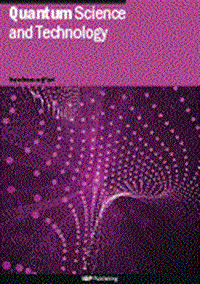人工智能和量子计算伦理——相同但不同?迈向计算伦理学的新分支领域
IF 5
2区 物理与天体物理
Q1 PHYSICS, MULTIDISCIPLINARY
引用次数: 0
摘要
随着量子计算的发展越来越接近于实现容错纠错的实现,关于量子计算的应用、影响、风险和好处的辩论是及时和应有的。虽然人们意识到量子计算机的潜在能力和复杂性,但对这项技术的社会影响和伦理影响的关注相对较少。在应对量子计算的社会影响时,一些利益相关者已经转向应用伦理学,特别是(经典)计算机和人工智能(AI)伦理学,以寻求指导。虽然计算机和人工智能伦理是评估量子计算带来的伦理问题的有用起点,但不加批判地应用现有的伦理原则可能会忽视量子计算与这些技术的不同之处。我们认为,借鉴人工智能和计算的伦理原则和准则是不合适的,原因如下:(1)量子计算、经典计算和人工智能是不同的技术,具有显著的物质差异;(2)与已经建立的人工智能和经典计算机不同,量子计算是一种新兴技术,它对社会的可访问性和直接影响水平具有影响;(3)人工智能和量子计算的开发方式以及由谁开发存在显著差异。我们还简要总结了量子计算带来的一些独特风险和社会影响。我们认为,这些原因支持量子计算伦理的新子领域的论点,这将允许相关学术发展并提供指导,随着量子计算技术的不断成熟。本文章由计算机程序翻译,如有差异,请以英文原文为准。
AI and quantum computing ethics- same but different? Towards a new sub-field of computing ethics
As quantum computing development advances closer toward achieving fault-tolerant error-corrected realisation, debates on applications, impacts, risks, and benefits of quantum computing are timely and due. While there is awareness of the potential power and complexity of quantum computers, there has been relatively little attention on the social impacts and ethical implications of this technology. In grappling with the social impacts of quantum computing, some stakeholders have turned to applied ethics, specifically (classical) computer and Artificial Intelligence (AI) ethics, for guidance. While computer and AI ethics are useful starting points for evaluating the ethical issues posed by quantum computing, uncritically applying existing sets of ethical principles risks overlooking how quantum computing differs from these technologies. We argue that borrowing of ethical principles and guidelines from AI and computing is inappropriate for several reasons: (1) quantum computing, classical computing, and AI are different technologies with significant material differences; (2) unlike AI and classical computers which have become established, quantum computing is an emerging technology, which has implications on the levels of accessibility and immediate impact in society; and (3) there are significant differences in the way AI and quantum computing have been developed and by whom. We also briefly summarise some of the unique risks and societ al impacts posed by quantum computing. We posit that these reasons support the argument for a new sub-field of quantum computing ethics, which would allow a relevant scholarship to develop and provide guidance as quantum computing technology continues to mature.
求助全文
通过发布文献求助,成功后即可免费获取论文全文。
去求助
来源期刊

Quantum Science and Technology
Materials Science-Materials Science (miscellaneous)
CiteScore
11.20
自引率
3.00%
发文量
133
期刊介绍:
Driven by advances in technology and experimental capability, the last decade has seen the emergence of quantum technology: a new praxis for controlling the quantum world. It is now possible to engineer complex, multi-component systems that merge the once distinct fields of quantum optics and condensed matter physics.
Quantum Science and Technology is a new multidisciplinary, electronic-only journal, devoted to publishing research of the highest quality and impact covering theoretical and experimental advances in the fundamental science and application of all quantum-enabled technologies.
 求助内容:
求助内容: 应助结果提醒方式:
应助结果提醒方式:


